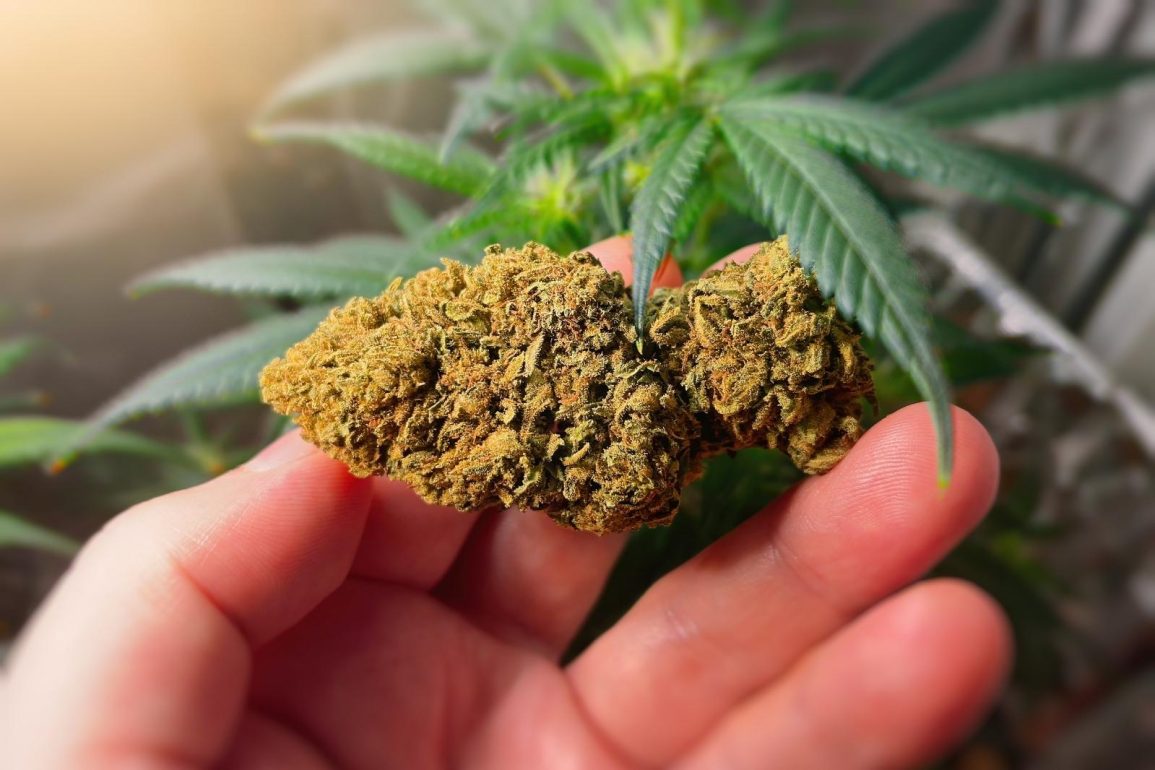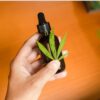In the ever-expanding world of cannabis products, one particular term has been gaining prominence in recent years: THCA flower. As more people turn to alternative therapies and wellness options, it’s essential to understand what THCA flower is and whether it has the potential to induce a high. In this article, we will delve into the Does THCA Flower Get You High, its properties, and its potential benefits.
Table of Contents:
- What is THCA Flower?
- What are the Benefits of THCA Flower?
- Does THCA Flower Get You High?
- How Is THCA Flower Made?
- Benefits of THCA Flower
- Conclusion
What is THCA Flower?
THCA, or tetrahydrocannabinolic acid, is a cannabinoid found in raw, unprocessed cannabis plants. It’s the precursor to the well-known psychoactive compound THC (tetrahydrocannabinol). Unlike THC, THCA does not induce a high when consumed in its raw form. Instead, it offers a range of potential therapeutic benefits.
THCA is typically found in higher concentrations in freshly harvested or undried cannabis plants. When exposed to heat or sunlight, high thca flower gradually converts into THC, which is responsible for the euphoric effects commonly associated with cannabis consumption. This conversion process is known as decarboxylation.
What are the Benefits of THCA Flower?
- Non-Psychoactive Pain Relief: One of the most notable benefits of THCA flower is its potential to provide pain relief without the psychoactive effects associated with THC. Some users have reported that THCA may help alleviate conditions like arthritis, chronic pain, and muscle spasms. This makes it an attractive option for those seeking relief without impairing their cognitive functions.
- Anti-Inflammatory Properties: THCA has shown promise as an anti-inflammatory agent. Inflammation is linked to various health issues, including autoimmune disorders and neurodegenerative diseases. Some research suggests that THCA may help reduce inflammation and alleviate symptoms associated with these conditions.
- Nausea and Appetite Control: Another potential benefit of THCA is its ability to address nausea and stimulate appetite. This makes it a valuable option for individuals undergoing chemotherapy or dealing with conditions like anorexia. Unlike THC, THCA doesn’t produce the same level of intense hunger commonly referred to as “the munchies.”
- Neuroprotective Effects: THCA has shown neuroprotective properties in preclinical studies. It may help protect brain cells and potentially slow the progression of neurodegenerative diseases like Alzheimer’s and Parkinson’s. However, more research is needed in this area to confirm its efficacy.
- Antioxidant Properties: THCA is believed to possess antioxidant properties that can help combat oxidative stress in the body. Oxidative stress is linked to various health issues, including aging, cancer, and cardiovascular diseases. Antioxidants can neutralize harmful free radicals and reduce oxidative damage.
Does THCA Flower Get You High?
THCA, in its raw and unheated form, does not produce the intoxicating effects commonly associated with THC. THCA is a non-psychoactive cannabinoid found in abundance in fresh, unprocessed cannabis plants. It only becomes psychoactive when exposed to heat in a process known as decarboxylation, which converts THCA into THC.
When you consume raw THCA flowers, such as by juicing fresh cannabis leaves or eating them in salads, you won’t experience the typical euphoria, altered perception, or cognitive impairment associated with THC. Instead, THCA offers potential therapeutic benefits, which we’ll discuss later in this article.
Smoking THCA (tetrahydrocannabinolic acid) flower is an uncommon practice, primarily because THCA in its raw, unheated form is non-psychoactive and doesn’t produce the typical “high” associated with cannabis use.
How Is THCA Flower Made?
The production of THCA flower involves specific steps to preserve the cannabinoid in its raw form. Here’s a brief overview of how THCA flower is made:
- Harvesting: THCA-rich cannabis strains are selected for cultivation. These strains typically have a higher concentration of THCA and a minimal amount of THC.
- Timing: The timing of the harvest is crucial. To obtain the maximum THCA content, the cannabis plants are harvested at a specific stage when THCA levels are at their peak. This often occurs just before the flowering stage when the trichomes are still clear or slightly milky.
- Processing: After harvesting, the cannabis plant material is processed immediately to minimize the risk of THCA converting into THC due to exposure to heat or light. This typically involves drying the plant material at low temperatures or using freeze-drying methods.
- Storage: Proper storage is essential to maintain the THCA content of the flower. It should be stored in a cool, dark, and airtight environment to prevent degradation.
- Consumption: THCA flower can be consumed in various ways to maximize its potential benefits. Some people juice fresh cannabis leaves, while others incorporate them into recipes, infusions, or tinctures. Keep in mind that heating the flower (such as smoking or vaping) will convert THCA into THC, producing psychoactive effects.
Benefits of THCA Flower
While THCA flower doesn’t produce a high, it offers several potential therapeutic benefits:
- Anti-Inflammatory: THCA may have anti-inflammatory properties, making it useful for conditions like arthritis and inflammatory bowel diseases.
- Pain Relief: Some users report that THCA can help alleviate pain without causing intoxication.
- Nausea Control: THCA may help reduce nausea and improve appetite, making it beneficial for individuals undergoing chemotherapy or dealing with appetite-related issues.
- Neuroprotective: Research suggests that THCA has neuroprotective properties, which could be valuable for neurodegenerative conditions like Alzheimer’s and Parkinson’s diseases.
- Antioxidant: THCA exhibits antioxidant properties, potentially helping to combat oxidative stress and reduce the risk of various chronic diseases.
Conclusion
In conclusion, THCA flower does not produce a high when consumed in its raw form, as it lacks the psychoactive properties of THC. Its production involves careful cultivation, harvesting, processing, and storage to preserve its THCA content.
While more research is needed to fully understand its therapeutic potential, THCA flower offers promising non-psychoactive benefits, making it an intriguing option for individuals seeking relief from various health conditions without the typical “high” associated with cannabis use. Always consult with a healthcare professional or a knowledgeable cannabis specialist before incorporating THCA into your wellness regimen.
Disclaimer – The contents of this article are provided solely for informational purposes and should not be considered medical advice. It is important to note that the information presented here is not meant to diagnose, treat, cure, or prevent any disease. Prior to embarking on any new health-related regimen, Always consult your healthcare provider before trying new supplements or treatments. Keeping you safe and well is our top priority. Additionally, it’s important to note that the FDA has not endorsed any claims regarding the health benefits of cannabis. Delta8Hub makes no guarantees or warranties regarding the accuracy, completeness, or usefulness of any messages contained here in.

